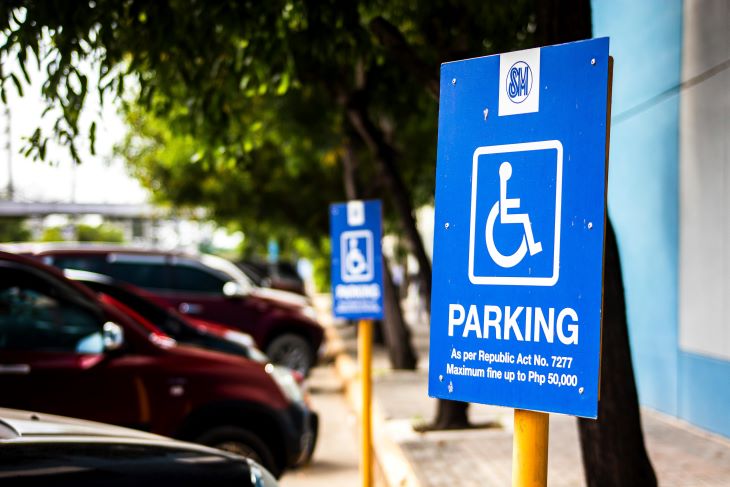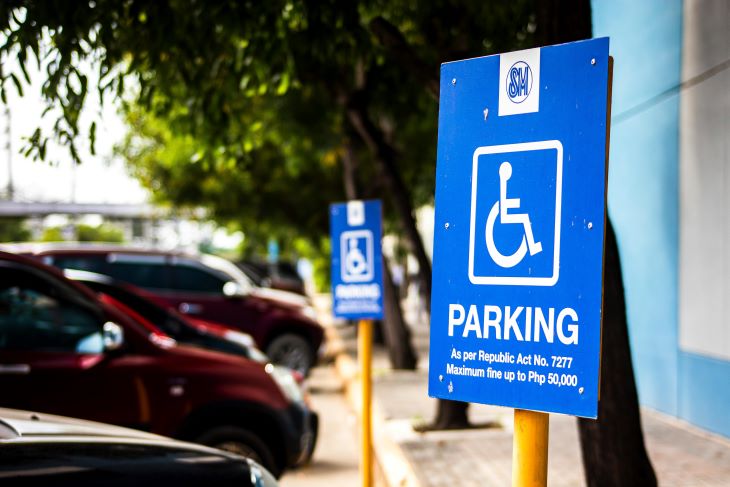In our daily rush, it’s easy to overlook the significance of understanding handicap parking regulations in Ohio. Handicap parking, often marked with the distinctive blue and white symbol, ensures equal access and convenience for those who face mobility challenges. Understanding Ohio’s laws and regulations regarding handicapped parking is not only important for compliance but also for fostering a more inclusive community.
Understanding Handicap Parking Permits
Who qualifies for a handicapped parking permit in Ohio?
In Ohio, eligibility for a handicapped parking permit (officially known as a disabled parking placard or permit) is determined based on specific criteria related to mobility impairments. Generally, individuals who may qualify include:
- Individuals with Mobility Limitations: Those who have a temporary or permanent disability that severely impairs their ability to walk. This could include individuals with conditions such as arthritis, heart disease, lung disease, or other conditions that affect mobility.
- Wheelchair Users: Individuals who use wheelchairs for mobility.
- Visual Impairments: Individuals who are legally blind or have severe visual impairments that affect their ability to safely navigate while walking.
- Lung Disease Patients: People with severe lung disease who experience significant discomfort or distress while walking long distances.
- Cardiac Patients: Individuals with severe cardiac conditions that impose significant limitations on their ability to walk.
- People with Other Conditions: Other medical conditions that cause severe limitations in walking ability as determined by a licensed physician.
To obtain a handicapped parking permit in Ohio, individuals typically need to fill out an application form provided by the Ohio Bureau of Motor Vehicles (BMV). The application usually requires medical certification from a licensed physician, nurse practitioner, chiropractor, or podiatrist verifying the applicant’s condition and need for special parking privileges.
It’s important to note that the specific eligibility criteria and application process may vary slightly depending on the state regulations, so applicants should always refer to their local BMV or Department of Motor Vehicles (DMV) for the most accurate and up-to-date information.
Types of Handicapped Parking Permits Available
In Ohio, there are several types of handicapped parking permits available based on the individual’s needs and circumstances. These include:
- Permanent Parking Placard: This placard is issued to individuals with permanent disabilities that significantly impair their ability to walk. It is typically valid for four years and can be renewed.
- Temporary Parking Placard: Issued to individuals with temporary disabilities that severely limit their ability to walk. This could include recovering from surgery, injury, or a medical condition that causes temporary mobility impairment. Temporary placards are issued for a specific period, usually up to six months.
- Organization Parking Placard: This placard is issued to organizations that transport individuals with disabilities. It allows the organization’s vehicles to park in designated handicap-accessible spaces when transporting disabled individuals.
- Disabled Veteran License Plates: These are special license plates issued to veterans with disabilities related to their military service. These plates may qualify the vehicle for accessible parking, depending on the severity of the disability.
How to Obtain a Handicapped Parking Permit in Ohio
To obtain a handicapped parking permit, applicants must fill out a form provided by the Ohio Bureau of Motor Vehicles (BMV). The form requires certification from a licensed physician, physician assistant, advanced practice registered nurse, or chiropractor. Once approved, permits are issued for varying durations, depending on the medical condition.
Another option is to use our Dr. Handicap online platform to apply for your handicap placard today. We serve as an intermediary between handicapped drivers and the state’s DMV during the application process. We make it easy and simple.
Handicap Parking Spaces and Signage
Designated Handicapped Parking Spaces: What they look like and Where to find them
Handicapped parking spaces in Ohio are specifically designated to provide accessibility and convenience for individuals with disabilities. They are easily identifiable by a distinctive blue and white sign displaying the international symbol of access—a figure in a wheelchair. Here are some key features and considerations about these parking spaces:
- Design and Size: Handicap parking spaces are wider than regular parking spots to accommodate wheelchair lifts, and mobility devices, and facilitate easier access into and out of vehicles. The width ensures there is ample space for individuals with mobility aids to maneuver comfortably.
- Proximity to Entrances: These spaces are strategically located near building entrances to minimize the distance individuals with disabilities need to travel. This proximity enhances accessibility and allows for more convenient access to facilities such as stores, offices, and public buildings.
- Accessibility Requirements: Handicapped parking spaces are required to meet specific accessibility standards set by the Americans with Disabilities Act (ADA) and local regulations. This includes features like a flat, stable surface, appropriate slope for accessibility, and proper signage to indicate reserved status.
- Regulatory Compliance: Parking in handicapped spaces without a valid permit or placard is strictly regulated and subject to fines. This enforcement ensures that these designated spaces remain available exclusively for those who genuinely need them, promoting fairness and accessibility for all individuals with disabilities.
- Accommodating Various Needs: Apart from standard handicap parking spaces, some facilities may also have van-accessible spaces with additional features such as extra width for wheelchair-accessible vehicles and vertical clearance to accommodate ramps or lifts.
Overall, the presence of handicapped parking spaces with their distinctive signage and specialized design plays a crucial role in facilitating accessibility and inclusivity for individuals with disabilities in Ohio and beyond. These spaces are a visible reminder of society’s commitment to promoting equal access and convenience for all individuals, regardless of their physical abilities.

Parking Regulations and Etiquette
Parking time limits for handicapped parking spaces
In Ohio, handicapped parking spaces often have time limits to prevent abuse and ensure turnover for all users. These limits vary by location but are typically enforced to balance accessibility with the needs of all drivers.
Penalties for misuse of handicapped parking spaces
Misusing handicapped parking spaces in Ohio, whether by parking without a valid permit or using someone else’s permit illegally, is considered a serious offense due to its impact on individuals who genuinely require these accessible facilities. Here are expanded details on the consequences of such misuse:
- Legal Ramifications: Parking in a handicapped space without a valid permit or placard is a violation of Ohio state law. Law enforcement officers are authorized to issue citations for these violations, which can result in substantial fines and penalties.
- Fines and Penalties: The fines for misusing handicapped parking spaces in Ohio are typically significant, reflecting the seriousness of the offense. These fines can vary depending on local ordinances but often range from hundreds to over a thousand dollars.
- Enforcement Measures: Authorities actively monitor and enforce handicapped parking regulations to ensure compliance. This includes regular patrols by law enforcement officers and parking enforcement personnel who are trained to identify misuse and issue citations accordingly.
- Impact on Accessibility: Misuse of handicapped parking spaces denies access to individuals with disabilities who rely on these designated spots for safe and convenient access to buildings and facilities. This can create barriers to participation in daily activities and diminish the quality of life for those affected.
Read our post to learn more details about the Impact of Handicap Parking Abuse in the US.
Etiquette tips for using handicapped parking spaces
When utilizing a handicapped parking space, it’s crucial to adhere to respectful and legal practices that ensure accessibility for those who genuinely require these designated spots. Here are expanded guidelines for using handicapped parking spaces effectively:
- Proper Display of Permit: Always display your handicapped parking permit or placard prominently on the rearview mirror or dashboard of your vehicle. This ensures that enforcement personnel and others can readily identify your authorized use of the space.
- Validity and Visibility: Ensure that your permit is valid and not expired. Most permits have expiration dates, and it’s essential to renew them as required by your state’s regulations. A visible, current permit reduces misunderstandings and ensures compliance with parking laws.
- Respect Striped Access Aisles: Handicapped parking spaces often have adjacent striped access aisles designed for wheelchair lifts and ramps. These striped areas are crucial for providing sufficient space for wheelchair users to enter and exit vehicles safely. Never park in these striped aisles, as they are designated for accessibility and blocking them can prevent individuals from safely accessing their vehicles.
- Avoid Blocking Wheelchair Ramps: Adjacent to handicap parking spaces, there are often designated wheelchair ramps. These ramps are essential for individuals who use wheelchairs or other mobility aids to access sidewalks and buildings. Parking in a manner that obstructs these ramps prevents individuals from safely navigating their surroundings.
For more detailed information, check out our blog about the do’s and don’t of handicap parking etiquette.
Resources and Support
Where to find more information about handicapped parking in Ohio
For detailed information on handicap parking regulations and permits in Ohio, visit the Ohio BMV website or contact local BMV offices. They provide up-to-date guidelines and forms necessary for obtaining permits.
Organizations and resources for individuals with disabilities in Ohio
Several organizations in Ohio offer support and resources for individuals with disabilities, including information on accessible parking, advocacy, and community services. These organizations are valuable allies in promoting accessibility and inclusivity.
Here is a list of organizations in Ohio that offer support and resources for individuals with disabilities, including information on accessible parking, advocacy, and community services:
- Ohio Developmental Disabilities Council
- Provides advocacy and support for individuals with developmental disabilities and their families.
- Website: https://www.facebook.com/ohioddcouncil/
- Ohio Department of Developmental Disabilities (DODD)
- Offers services and supports for individuals with developmental disabilities, including information on accessible parking and community resources.
- Website: https://www.facebook.com/DODDOhio/
- Ohio Statewide Independent Living Council (SILC)
- The Ability Center of Greater Toledo
- Provides services and advocacy for people with disabilities in the Greater Toledo area, including information on accessible parking and community resources.
- Website: abilitycenter.org
- Disability Rights Ohio
- Protects the rights of individuals with disabilities across Ohio through legal advocacy and public policy initiatives.
- Website: disabilityrightsohio.org
- Ohio Valley Center for Brain Injury Prevention and Rehabilitation
- Focuses on brain injury prevention, rehabilitation, and community reintegration services, including resources related to accessible parking.
- Website
- Access Center for Independent Living
- Provides independent living services and advocacy for individuals with disabilities in Northeast Ohio.
- Website: https://acils.com/
- Multiple Sclerosis Society of Ohio
- Offers support services and advocacy for individuals living with multiple sclerosis, including information on accessible parking and community resources.
- Website: mssociety.org
These organizations play vital roles in supporting individuals with disabilities across Ohio, promoting accessibility, advocacy, and inclusivity within communities. They provide valuable resources, information, and support to enhance the quality of life and ensure equal opportunities for all individuals with disabilities.
Guide to Handicap Parking in Ohio
Handicap parking is not just about convenience—it’s about ensuring equal access and respect for individuals with disabilities. By understanding Ohio’s laws and regulations regarding handicapped parking, we can all contribute to a more inclusive society where everyone has the opportunity to participate fully. Let’s continue to prioritize accessibility and demonstrate empathy in our everyday actions.
In closing, let’s remember that a few moments of consideration can make a world of difference to someone who depends on accessible parking. Together, we can create a community where everyone feels welcome and valued, starting with our approach to handicapped parking.
Need more information on disabled parking in the US? From handicap parking at Yellowstone National Park in Wyoming to handicap parking for out-of-state visitors in Vermont, we offer a useful bank of detailed topics on the Dr Handicap blog. Check it out today!
Featured image by Robert Conklin on Unsplash.




